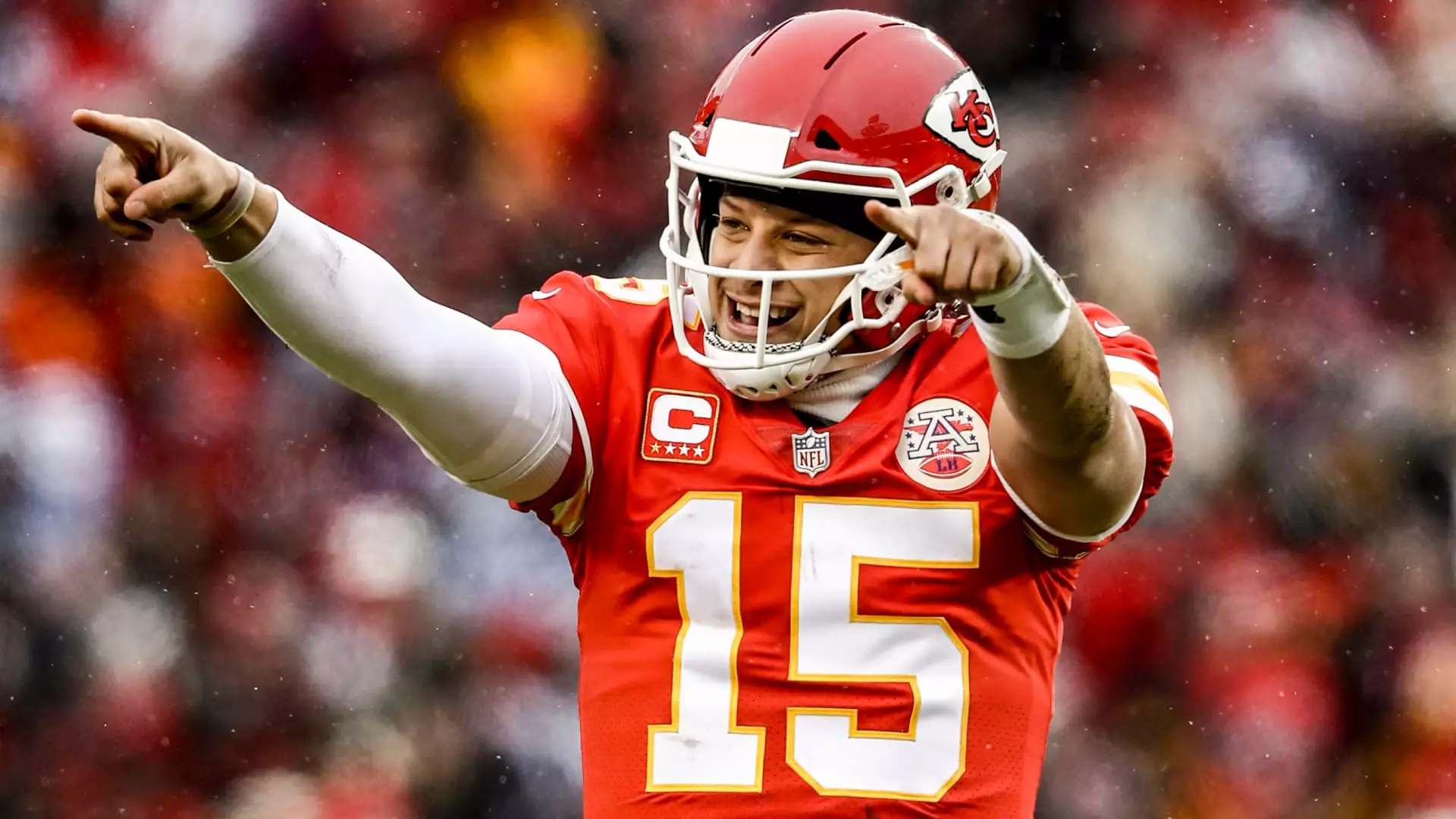In recent years, we have witnessed an alluring narrative that casts elite athletes like Patrick Mahomes as modern-day entrepreneurs capable of transcending their athletic exploits. The story of Mahomes diving into coffee investments, particularly with Throne Sport Coffee, appears to reinforce this myth. Yet, this romanticization often obscures the deeper, more troubling implications: Are these ventures genuinely driven by passion or merely strategic brand positioning? Is this diversification of interests an authentic pursuit or a calculated move to leverage star power for financial gain? The truth is that many athletes, Mahomes included, are quick to project an image of multifaceted excellence, but rarely do these ventures hold up under rigorous scrutiny. They serve more as marketing tools than as meaningful contributions to a new industry or community development.
The narrative surrounding Mahomes’ coffee enthusiast role, while appealing, masks the underlying question of whether his involvement contributes anything substantive to the consumer or local economy. Is he genuinely interested in improving health-conscious coffee options, or is he simply capitalizing on the booming ready-to-drink coffee market to diversify his portfolio? That market, valued at $17.7 billion in 2023, is saturated with corporate giants, making the entry of an athlete-led brand more about branding than innovation. When athletes venture into business, it often resembles a veneer of entrepreneurial spirit—strategic branding that amplifies their personal images rather than creating lasting value for stakeholders.
The Illusion of Authenticity in Athlete-Endorsed Products
Mahomes’ claim that his interest in coffee was born out of necessity during NFL meetings is a typical trope—an athlete’s authentic journey that is then used as a marketing narrative. But how genuine is this story? Athletes, especially those at Mahomes’ level, are adept at crafting narratives that align with aspirational values—health, discipline, authenticity—that resonate with their fans. While Mahomes may genuinely enjoy coffee, his role as the brand’s lead pitchman feels more like a strategic alignment than a personal hobby. His daily consumption of Throne Coffee, with its healthier profile, is more a statement about aligning with consumer trends than a reflection of personal necessity.
Moreover, by positioning himself at the forefront of a burgeoning industry, Mahomes risks reducing his athletic achievements to mere background noise. His investments blur the line between genuine passion and savvy marketing, which can dilute the perception of his real accomplishments on the field. Are these endeavors driven by a true entrepreneurial spirit or by a desire to amplify his brand and extend his relevance beyond sports? The answer leans toward the latter, which raises questions about the authenticity of such ventures and whether they are genuinely additive or simply symbols of a modern athlete’s pursuit of fame and fortune.
Sports Investments and the Mirage of Long-Term Wealth
Mahomes’ portfolio of sports interests—minority stakes in local teams like the Kansas City Royals, Sporting Kansas City, and the NWSL’s KC Current—further exemplifies how modern athletes seek to embed themselves within their communities. While this can be seen as a positive development, it also cleverly positions Mahomes as a potential future owner rather than just a player. The allure of investor status in sports franchises ties into a larger cultural obsession with ownership and permanence, which appeals to players seeking to secure their legacies.
However, such investments are fraught with risks that often go unexamined. Sports franchises are notoriously volatile, heavily dependent on market conditions and management decisions. Simply put, Mahomes’ stakeholdings mean less stability and more exposure to capital-flourishing gambles. The notion that he might someday take over the Chiefs remains a flattering fantasy, but it also veers dangerously close to personal branding that reminiscent of the super-rich financiers and owners who dominate modern sports. Is this genuine intent, or savvy career planning cloaked in community-oriented rhetoric? More often than not, it’s the latter, which can distort perceptions of athlete intelligence and vision.
The Contradictions of Stadium Politics and League Expansion
In discussing decisions like the future of Arrowhead Stadium, Mahomes’ comments reflect typical athlete neutrality—applauding the fans and respecting history, but sidestepping any real engagement with the contentious negotiations involved in stadium renovations or new constructions. The debate over stadium upgrades or new builds encapsulates a broader conflict between public interests, franchise profitability, and urban development. Athletes, in these conversations, often serve as figureheads—highlighting the emotional value of stadiums while sidestepping their economic and political complexities.
Similarly, Mahomes’ skepticism over potential league changes such as an 18-game season or international expansion reveals a nuanced understanding that is often absent in the typical athlete’s public discourse. These issues have wide-ranging implications for player health, league integrity, and revenue distribution. Mahomes’ cautious stance underscores an awareness that increased games or international games threaten player welfare and undermine the sport’s heritage—yet he remains a passive participant in the narrative, perhaps preferring to maintain his marketability rather than challenge league authorities.
The Reality of the Modern Athlete’s Brand Over Substance
Ultimately, Mahomes embodies the archetype of the modern athlete as a brand ambassador—balancing on a tightrope between athletic greatness and commercial enterprise. While this dual identity can be inspiring to fans, it fosters a dangerous culture where sport becomes secondary to branding. The real consequences of this trend are less about genuine investment in communities or industries and more about the relentless pursuit of personal equity on all fronts.
What remains overlooked in this fabricated narrative is a core truth: athletic achievement is finite, yet the pressure to maintain relevance in multiple fields grows relentless. Athletes like Mahomes risk becoming captive to their own brands, perpetually chasing evolution into areas they may not fully understand or care about, all under the guise of authenticity and civic engagement. But beneath this veneer lies a stark reality—beyond the bragging rights and marketability, these ventures are ultimately about self-preservation in a lucrative but fleeting career landscape.

